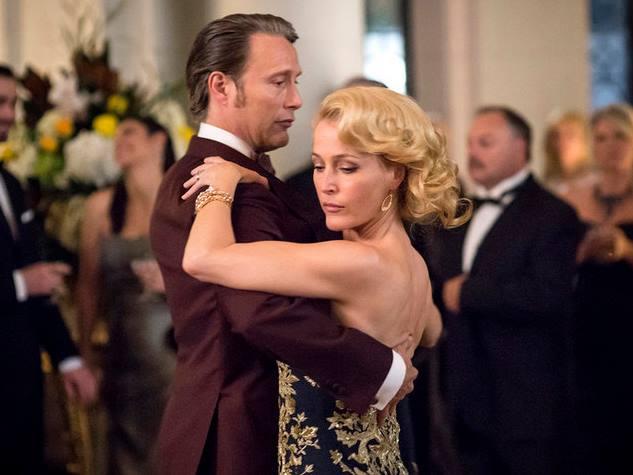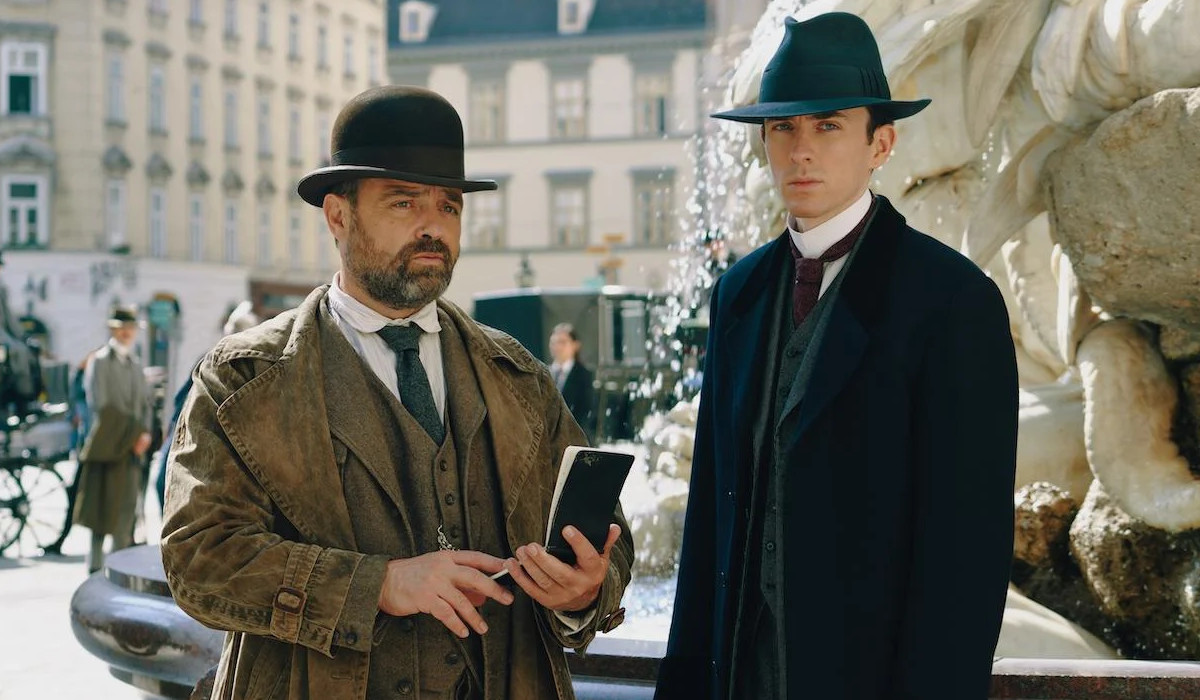More prominent voices are speaking about about the current topic of sexual assault on TV. This time it’s Hannibal’s Bryan Fuller, who previously had a strong stance against it for his NBC series.
The creator, who recently discussed the diversity you can expect from his American Gods project, did an interview with Entertainment Weekly where they talked about how often television series fall into the plot device and how he specifically steers clear of it.
It’s one of the things on the show that we really wanted to avoid. They’re ubiquitous on television, and there’s an entire series [NBC’s Law & Order: SVU] that’s about rape. It was challenging approaching the Red Dragon story because the crimes that Francis Dolarhyde commits [in the novel] include the horrible raping of corpses, and near-corpses. In crafting the story arc of the Red Dragon, it became a challenge on how to keep true to the novel but deemphasize the exploitive qualities of woman being raped. That was one of the big challenges in terms of how do we keep our promise [to not tell rape stories] to our audience—which is largely female—and also service the novel. It became a tricky matter of deemphasizing women being targeted, and making more pronounced the crimes against the victim’s family as a whole. We didn’t wanna glorify it—well, not “glorify,” because I don’t think any of the crime procedural shows are actually “glorifying” rape. But it is certainly explored so frequently that it rarely feels genuine.
It’s really great to hear a prominent creator explaining the usage of the trope and how you can actively choose to avoid it while still staying true to the source material of the book your show is based on.
“‘A character gets raped’ is a very easy story to pitch for a drama. And it comes with a stable of tropes that are infrequently elevated dramatically, or emotionally,” Fuller also said. “And it’s frequently so thinly explored because you don’t have the real estate in 42 minutes to dig deep into what it is to be a victim of rape. It appears over and over again in crime procedurals without upping the ante and without exploring everything that happens.”
And that’s one of our biggest problems with its usage, it’s added for shock and never explored in a way which would actually inform viewers.
Entertainment Weekly also asked him specifically about Game of Thrones and the recent discussion surrounding their use of sexual violence. [Editor’s Note: At time of publishing, we have over 12,000 comments on our post outlining our decision to not promote the show anymore and new commenters still dropping by each day to tell us 1.) we are making something out of nothing, 2.) it’s based on history, 3.) but what about Theon?!?!?]
Unfortunately, while Fuller has strong feelings about how rape is used in general, he had some things to say about the HBO series we don’t agree with:
I thought it was handled tastefully, all things considered. You could have done that scene on broadcast. With Thrones, you’re telling a story based on a time where those sort of violations were common. [Editor’s Note: Commenter Jeff has something you should read (wait for page to load before scrolling) in regards to this statement specifically. Also, dragons and zombie people.] And women did not have the stance in that world to effectively resist. And with Sansa Stark, and that particular attack, we know Ramsay Bolton as someone who is a horrible violator of all things human—what he did to Theon Greyjoy is part and parcel of his cruelty. So it felt organic to the world—not only what happened to Sansa, but [the attempted rape of] Gilly. It feels like we’re in the Wild Wild West, and that’s part of how they’re choosing to explore the story. I see why they’ve made the choices they have in the stories they’ve told, so I can’t criticize them for using that tool.
In the case of Sansa Stark, it feels like they are building toward something for this woman to overcome, and some horrible lessons that she has to learn about the patriarchy that surrounds her—such as Littlefinger knowing what could happen to her and knowing it might force her into taking more drastic vengeance [against the Boltons] that could benefit him. If I was the showrunner of Game of Thrones would I make those choices? I have no idea. But in terms of me coming into a crime procedural story on Hannibal and seeing the things I don’t like about other crime procedurals, it’s easier for me to say I don’t want that aspect in the one I’m doing.
However, we’ll leave you with this.
“I’m saying this as somebody who can derive immense entertainment from cannibalism – there’s an irony to cannibalism that I find horrific and amusing. I can totally get behind cannibalism and have fun with it. But rape? Not so much,” he said. “If I was really putting my money where my mouth is, I would have explored rape so thoroughly that it would have taken over [Hannibal]. But there were other elements that seemed more entertaining as an audience member to explore than that one.”
—Please make note of The Mary Sue’s general comment policy.—
Do you follow The Mary Sue on Twitter, Facebook, Tumblr, Pinterest, & Google +?









Published: Jun 1, 2015 01:02 pm